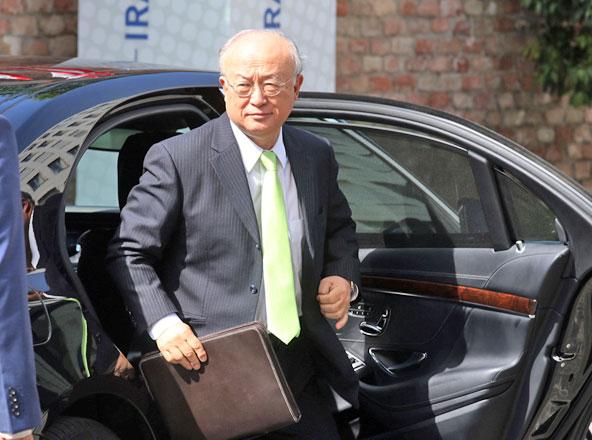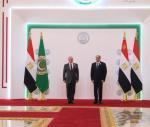You are here
Iran looks to prolonging nuclear talks
By Reuters - Jul 15,2014 - Last updated at Jul 15,2014
VIENNA — Iran must reduce its capacity to make nuclear fuel if it wants to secure a long-term agreement with six world powers and end sanctions, US Secretary of State John Kerry said on Tuesday.
For its part, Tehran suggested that an extension of talks beyond a July 20 deadline was likely.
Iran and the six nations are trying to bridge differences in negotiating positions over a deal intended to end a decade-long dispute over Tehran’s nuclear programme.
The West fears the programme may be aimed at developing a nuclear weapons capability but Iran says it is for peaceful purposes.
“We have made it crystal clear that the 19,000 [nuclear centrifuges] that are currently part of their programme is too many,” Kerry told reporters after three days of talks with Iranian Foreign Minister Mohammad Javad Zarif.
In a New York Times interview, Zarif floated the idea of Tehran keeping its enrichment programme at current levels for a few years before expanding it. Diplomats said the Iranian delegation had raised this issue with the six in recent weeks.
The proposal was consistent with a speech by Iran’s Supreme Leader Ayatollah Ali Khamenei, which diplomats said had limited the Iranian delegation’s ability to make concessions and could make it difficult for Tehran to reach a deal.
Kerry said the talks — involving the United States, Britain, France, Germany, Russia and China as well as Iran — had made tangible progress on key issues but gaps remained.
“It is clear we still have more work to do and our team will continue to work very hard to try to reach a comprehensive agreement that resolves the international community’s concern,” Kerry said.
“There are more issues to work through and more provisions to nail down to ensure that Iran’s programme can always remain exclusively peaceful.”
Zarif echoed Kerry’s remarks, saying that although he had had good talks with the US diplomat, serious differences remained between the two sides.
He suggested prolonging the talks past July 20 was likely since “I see an inclination on the part of our negotiating partners that they believe more time may be useful and necessary”.
No decision on an extension has been taken yet.
But another Iranian official told Reuters on condition of anonymity: “I believe an extension is very likely on Sunday.” Other Western diplomats echoed his remarks.
Kerry to consult with Obama, Congress
Kerry said he had held several extensive conversations with Zarif since arriving on Sunday. They had a final short meeting at the Palais Coburg before Kerry returned to Washington.
Kerry will consult with President Barack Obama and Congress leaders about the prospects for a comprehensive agreement and the path forward if the July deadline is not met.
One option is to extend the talks for up to six months, which is theoretically possible according to an interim agreement Iran and the powers signed in November. The interim deal gave Iran limited sanctions relief in exchange for curbing some atomic work.
Zarif said he believed that “we have made enough headway to be able to tell our political bosses back home that this is a process worth continuing”.
It was not immediately clear if the progress Kerry spoke of on Tuesday was enough to justify an extension.
A history of hiding sensitive nuclear work from UN inspectors has kept international suspicions about Iran’s nuclear programme high and heightened the risk of a new Middle East war should diplomacy fail to yield a long-term settlement.
Israel has threatened military action against Iran if it is not satisfied with the results of the talks.
In the New York Times interview, Zarif said any limits on Iran’s nuclear programme should be lifted after three to seven years. But US officials have said Washington would want verifiable limits to remain in place for more than a decade.
Related Articles
VIENNA — A historic nuclear compromise within sight, American and Iranian negotiators struggled Monday to clear the final obstacles to an ag
VIENNA — The global nuclear watchdog said on Wednesday its boss would fly to Tehran to discuss one of the biggest sticking points that need
VIENNA — Iran and world powers gave themselves an extra week to reach a nuclear accord, extending a deadline due to expire on Tuesday, while
















